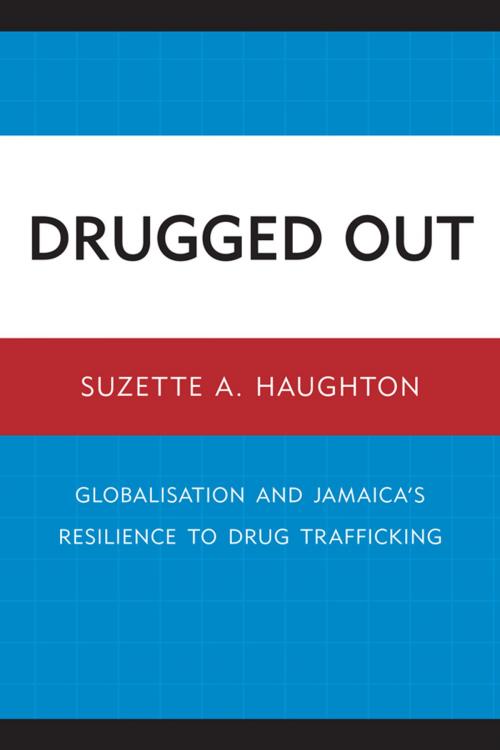Drugged Out
Globalisation and Jamaica's Resilience to Drug Trafficking
Nonfiction, Social & Cultural Studies, Political Science, International, International Relations, Government| Author: | Suzette A. Haughton | ISBN: | 9780761854487 |
| Publisher: | UPA | Publication: | May 16, 2011 |
| Imprint: | UPA | Language: | English |
| Author: | Suzette A. Haughton |
| ISBN: | 9780761854487 |
| Publisher: | UPA |
| Publication: | May 16, 2011 |
| Imprint: | UPA |
| Language: | English |
To penetrate the United States and Britain's markets with illicit drugs, Jamaican traffickers employed diverse and novel transportation methods and techniques in the post-1990 era that were more sophisticated than the trafficking of the 1980's. This transformation was particularly due to traffickers exploiting global processes to enhance their illegal drug industry. In response, Jamaica, America, and Britain have continuously established state-oriented actions aimed at curtailing the cross-border drug trade, thereby reflecting their resilience in combating this problem. This book explores past and present drug trafficking within the context of globalisation and examines state instituted responses to curb this problem. It demystifies the Jamaican, British, and American states' roles in the face of global security threats, such as drug trafficking, arguing that both developed and developing states pursue their national interests and maximize their goals through the exercise of state-power in controlling their territories and protecting their nationals from harm posed by traffickers.
To penetrate the United States and Britain's markets with illicit drugs, Jamaican traffickers employed diverse and novel transportation methods and techniques in the post-1990 era that were more sophisticated than the trafficking of the 1980's. This transformation was particularly due to traffickers exploiting global processes to enhance their illegal drug industry. In response, Jamaica, America, and Britain have continuously established state-oriented actions aimed at curtailing the cross-border drug trade, thereby reflecting their resilience in combating this problem. This book explores past and present drug trafficking within the context of globalisation and examines state instituted responses to curb this problem. It demystifies the Jamaican, British, and American states' roles in the face of global security threats, such as drug trafficking, arguing that both developed and developing states pursue their national interests and maximize their goals through the exercise of state-power in controlling their territories and protecting their nationals from harm posed by traffickers.















